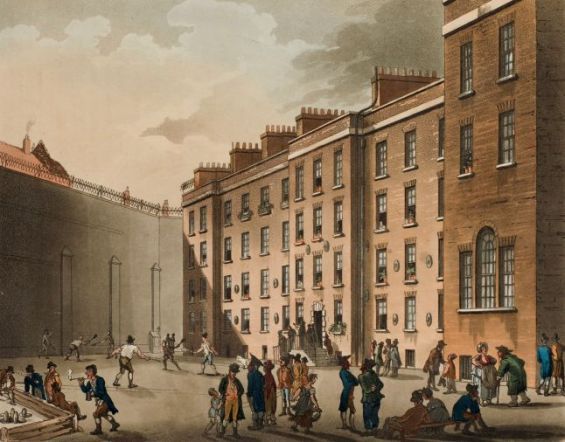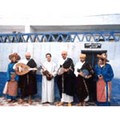His father, Samuel Sumbal, was a respected Jewish man who served for years as sultan Mohammed ben Abdallah’s right-hand man. Joseph Hayyim Sumbal, however, led a different life, an adventurous one to say the least.
Born in Morocco in 1762, Sumbal marked the history of Europe during the late 18th century with his eccentric lifestyle and unusual ideas. After the death of his father, Joseph, like his brothers, left for Europe to claim his inheritance.
History has it that the young Moroccan man first settled down in Denmark, where his father once served as the sultan’s ambassador. In Copenhagen, Joseph Sumbal made history, becoming the first Jew to create a new religion.
Claiming a new world religion
In 1788, the man «proclaimed a new world religion of virtue and tolerance», recalled Jewish history Professor Todd Endelman in his book «Leaving the Jewish Fold: Conversion and Radical Assimilation in Modern Jewish History» (Princeton University Press, 2015).
Indeed, Sumbal wrote a pamphlet in French and Danish to announce that «he would proclaim a new religion and answer questions about it in Frederiksberg, a small town west of Copenhagen, site of a royal palace», Endelman wrote.
On June 11, Sumbal accompanied his servants and soldiers to the backyard of a royal palace to preach to the crowd about his «ground-breaking» religion. «The morning a crowd streamed into the palace garden to hear the new revelation», the historian said.
«Sumbal arrived in the afternoon, dressed in Turkish garb, a turban on his head and a gold sword at his side (…) when the crowd became unruly, he took refuge behind a fence on the palace grounds and from there preached his new religion».
On the same day, Sumbal stressed that he was not a Jew, Christian nor «Turk» (Muslim) but «rather a worshiper of virtue and that he had previously lived a debauched life but now was abstemious».
Confused by his revelations, the crowd showered him with questions in an attempt to understand his new religion. Unable to answer all the questions, Sumbal fled the crowd and eventually left Denmark for London.
A wedding in a London prison
In England, Sumbal started a new chapter with other adventures that made headlines at the time. Indeed, the trouble-maker rose to fame after he got arrested and jailed for failing to pay his debts. In his book «The Sultan's Jew: Morocco and the Sephardi World» (Stanford University Press, 2002), historian Daniel J. Schroeter recalls that Sumbal «was pursued by one of his brothers who had him arrested and confined to the Fleet, the famous debtors’ prison in London».
Other accounts suggest that he was sent to prison for contempt to the court after he refused to answer questions regarding a large quantity of diamonds that he had on him.
However, all accounts, including the memoirs of his wife, indicate that he got married to a London famous actress called Mary Wells while in prison. Describing her marriage proposal, Wells wrote : «He came in with all the pomp and splendor of an eastern monarch, attended by a number of Moorish servants».

After this spectacular scene, Wells accepted Sumbal’s marriage proposal and married him in prison in a wedding that made headlines. She converted to Judaisim and changed her name to Leah, according to the Morning Post and Gazetteer which reported on the wedding.
Describing the wedding, the newspaper wrote that «on Thursday evening, the marriage ceremony, in the Jewish style, was performed in the Fleet, uniting Mrs. Wells, late of Covent-garden theater, to Mr. Sumbal, a Moorish Jew, detained in debt in that prison».
«The bridegroom was richly dressed in white satin, a splendid turban with a white feather : the bride was also attired in an elegant style , with a large plume of white feathers».
Almost two weeks after his marriage, Sumbal reached a compromise with his brother and was released from prison. He bought a house in «Orchard-street, Portman-square to be near the Turkish ambassador, with whom he was intimate, and often visited», wrote Wells.
The union between Sumbal and Wells, however, did not last for long. In 1798, Wells and Sumbal divorced. «The unfortunate Mrs. Sumbal was left with major debts and pursued by creditors after her former husband left the country», wrote Schroeter.
After their divorce, Mary Wells learned that Sumbal left for Altona in Denmark. He died in the same town in 1804.




 chargement...
chargement...












